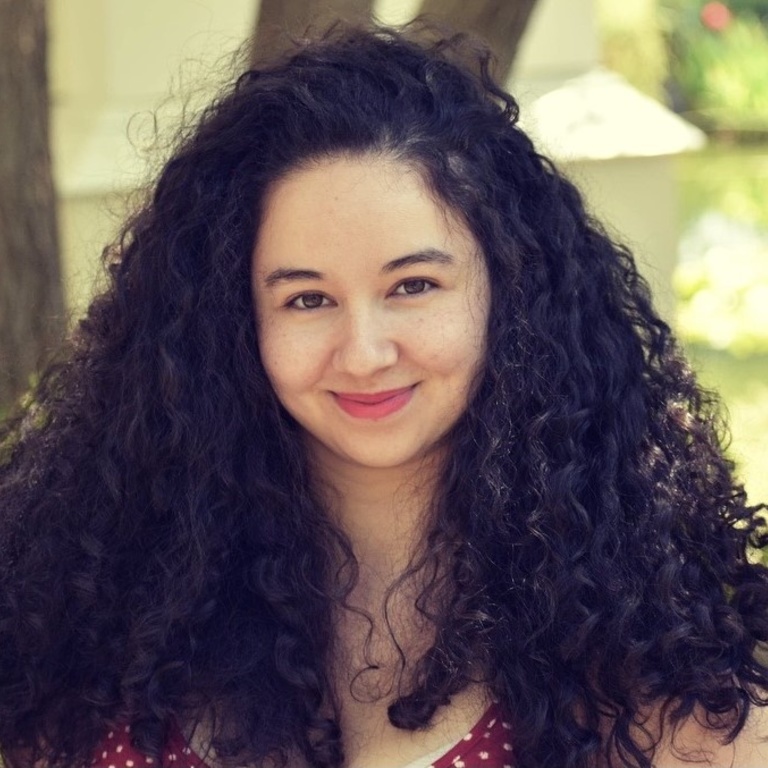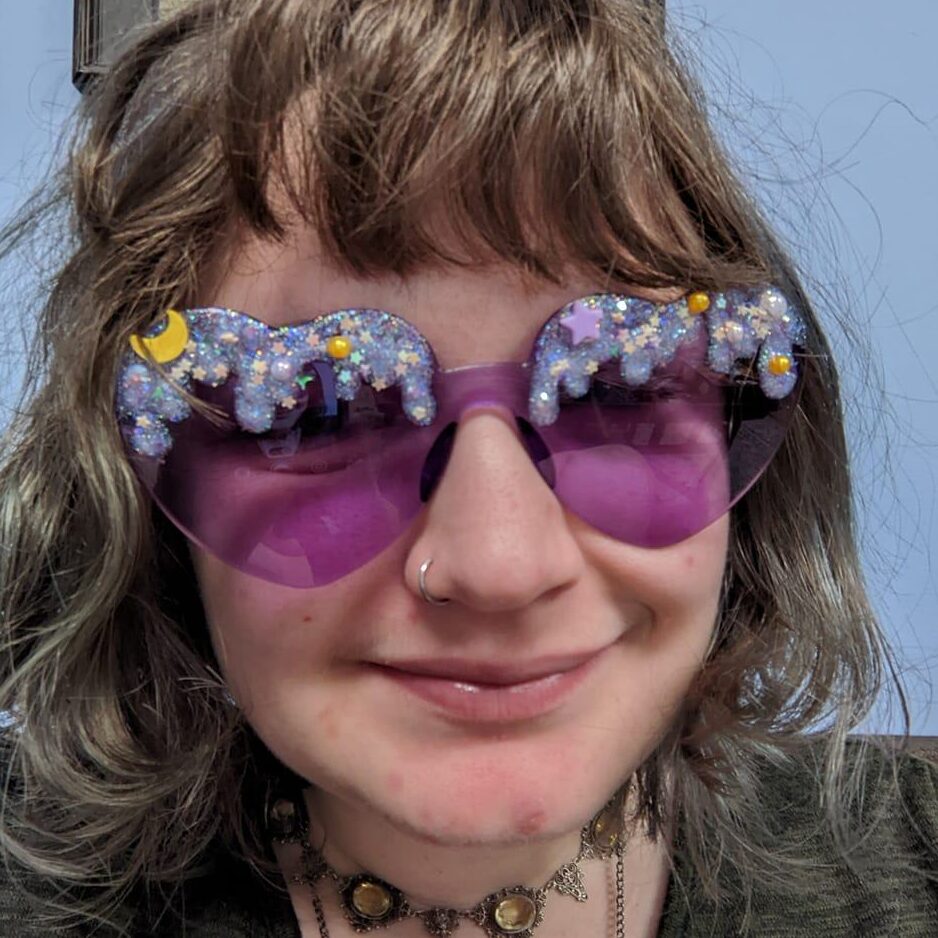The weekend before school starts, ambitious gamer and chronic liar Viv finds the perfect horror game to make her Twitch comeback after her baby sister’s death that summer. During an offline practice run, an NPC asks Viv for a secret, and in telling the truth about the events that kills her sister – and her part in them – accidentally welcomes a demonic mimic into her life.
The only person who believes Viv when she tells them about her evil doppelganger is Ash, a cute social outcast whom Viv once bullied. In trying to clear her name and kill the mimic, Viv discovers that her lies have hurt people who never deserved it, herself included.
We spoke with Tatiana Schlote-Bonne about her debut novel Such Lovely Skin, video games, and grief in horror media. This interview has been edited and condensed for clarity.
Grief and guilt are two big components of Viv’s story. On top of the paranormal threats, there are these inner struggles the protagonist faces. Could you give us details on how these two conflicts balanced each other?
I’ve always been drawn to grief horror – some of my favorite movies are The Babadook and The Orphanage. When I was working on the idea for Such Lovely Skin, I knew I wanted to do something similar to those stories where the antagonist’s internal struggle is directly connected or fueling the monster in some way. The external horror of the doppelganger amplifies Vivian’s inner horror of what happened to her baby sister and how she handled it. With each doppelganger’s appearance, Vivian’s paranoia and guilt worsen, and the doppelganger continues to do things that press on those bruises until Vivian’s completely spiraling.
Without the doppelganger, I think Such Lovely Skin would still be an interesting (albeit less entertaining) story about grief and self-forgiveness, and those kinds of horror stories where the human component is still really compelling without the monster are my favorite. The monster just heightens everything that’s already there.
The theme of “skin” in the horror book is fascinating. There is the physical identity of Viv being half Japanese, and fetishized for it, as well as her compulsive lying creating a sort of second skin around others. Lastly, a literal demon is trying to steal her skin, her identity. What drew you to the theme of metaphorical and physical skin?
I love mimics, evil twins, and doppelgangers. Copying your opponent’s ability and using it against them is an especially fun ability in games like Magic: The Gathering. The idea of a doppelganger antagonist has been gestating in the back of my brain for a long time, and with this story, it really fit with Vivian being so obsessed with her streamer image, reputation, and her habit of lying. The doppelganger is the perfect antagonist to weaponize those aspects of her character against her.
Regarding the emphasis on skin, it was actually my editor, Tamara Grasty at Page Street YA, who encouraged the idea of leaning into the skin angle more when we decided to go with the title Such Lovely Skin. Like you mentioned, it’s present in the story with Vivian literally having “lovely” skin. There’s also Viv’s streaming persona, which is this sort of alternate skin she creates for herself.
I loved the pop culture references in your book, from Deathnote to Silent Hill. Did you spend a lot of time deciding what you wanted to reference, or did it all just kind of flow?
Most of it just flowed. Like, if Vivian’s a fan of My Hero Academia, she’s surely a fan of other mainstream anime. Since she’s a streamer who’s immersed in gaming and anime culture, it felt natural for her voice and character to make lots of pop culture references. At one point in the editing process, I tried to cut back on the pop culture references to void “dating” the book and it just didn’t feel natural for the protagonist I was creating. Also, Vivian’s tastes are basically my tastes, so I really didn’t have to think about it too hard, though I’m not as big into horror games.
I noticed you have an MFA in Nonfiction writing. What drew you to write and publish horror?
In undergrad, I took several writing workshop classes and gravitated toward writing creepy and unsettling stories, but my main focus at the time was my dark comedy memoir, which was how I got into grad school. In my MFA program, I continued to write fun horror stories as a break from the memoir. Horror movies and books were the media I’d always had the most fun consuming, especially in childhood, and I really wanted to have fun writing again, and horror kept that spark going for me.
I also love how versatile the horror genre is. There’s grief horror, comedy horror, literary horror, space horror, underwater horror, light horror, extreme horror. Creative nonfiction can be really flexible too, but I found horror to be a refreshing escape with practically no limitations.
Do you have advice for aspiring horror writers?
Find your community! I know it’s basic advice, but that’s because it’s so true. I would absolutely not be where I am in my author career today if I didn’t have my writing group. And consume all things horror! Of course, horror books are a huge source of inspiration, but horror movies and video games inform my writing just as much.
Anything else you would like to add?
My next horror novel, The Mean Ones, comes out in fall 2025 from Creature Publishing. It’s my adult debut and there’s feminine rage, mean girls, and cult sacrifices. To stay updated on my writing, lifting, and cats, follow me on Instagram: @thebuffwriter and TikTok: @the_buff_writer!


